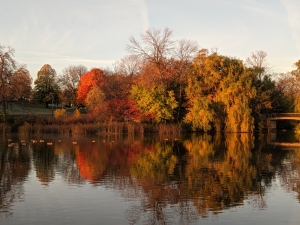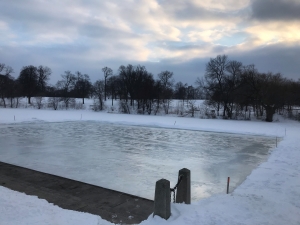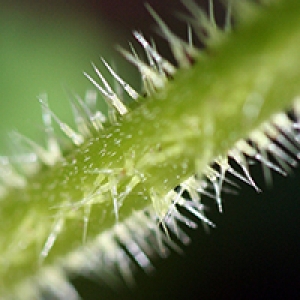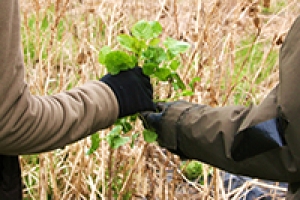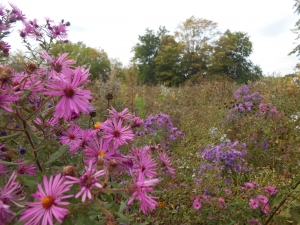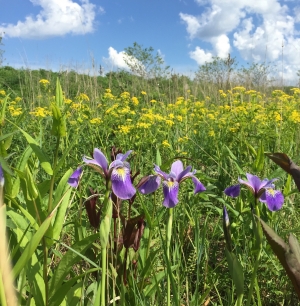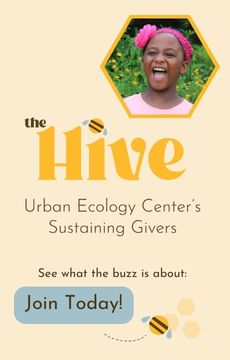

Michaela Rosenthal
Michaela began her days at the UEC as a volunteer, assisting the Land Stewardship team with buckthorn removal, tree and shrub planting as well as seed collecting and cleaning. In 2013, she joined the Stewardship team as the UEC Washington Park Branch Land Steward. Aside from her passion for land management, Michaela enjoys cooking, vegetable gardening and traveling around the United States as well as internationally. She takes any and all opportunities to explore the outdoors. When possible, she volunteers with local triathlon clubs with event/race set up, aid station dispenser or simply as the ultimate cheerleader.
The Impact of UEC Restoration Efforts at Washington Park
Since the Urban Ecology Center (UEC) Washington Park branch opened in 2007, we have had the privilege to work in partnership with Milwaukee County Parks, Washington Park Partners, Washington Park Senior Center patrons, our neighborhood schools, numerous student and corporate volunteer groups, community neighbors, and a variety of workforce development partners to help care for and activate Washington Park.
Winterkill in the Washington Park Lagoon
Many of you venturing outside through the Milwaukee parks this spring may see various aquatic life- fish and frogs –floating rather than swimming at the surface of the park ponds. This is known as “winterkill”.
Plant Defenses
Plants lack an immune system like that of animals. However, plants have developed their own unique defenses to detect bacteria, fungi, insects, and vertebrate organism invasion and stop them before mortal damage ensues. Tissue structure and chemistry as well as existing ecological relationships between animals and plants contribute to a plant’s defense and disease resistance. Aside from providing plant strength and rigidity, cell walls, waxy or rubbery films covering leaf and stem tissue, and bark all perform as physical barriers to invasion.
Earth Day: Uniting the World & Our Neighborhoods
Did you know Earth Day was first celebrated in the United States nearly fifty years ago? This annual event, which began on April 22, 1970, was proposed as a day to honor the Earth and the concept of peace by Senator Gaylord Nelson, Denis Hayes, and Paul Erlich. Twenty years later the event went global. Today, more than one billion people in nearly 200 countries participate internationally in Earth Day activities each year!
Wisconsin drought resistant plants
Has the weather lately left you feeling parched yet sweaty? Us too, but we can hardly stay inside knowing Autumn’s flower and foliage color display is on its way. While the weather remains unseasonably warm and minimal if any rain is in sight, many of our Wisconsin native plant species can take the heat as well as the drought conditions.
Naturescaping Design Principles
People around the country are joining in on the growing native plant gardening movement. In addition to providing a multitude of vital habitat components for wildlife, native grasses, sedges, wildflowers, trees, shrubs, and ferns also conserve water, are less maintenance than majority of ornamental cultivars, and save money in multiple ways.
Yet, even with all these benefits it can be challenging to work through the many stigmas that have come to over shadow Naturescaping.
Copyright © 2023 The Urban Ecology Center

